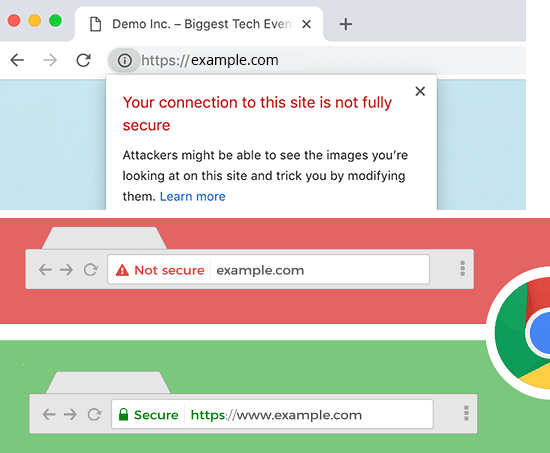
An SSL (Secure Sockets Layer) certificate is critical as it ensures data travels securely from the web browser through to your web server.
In other terms, a layer of encryption allows the business to communicate with the customers while they purchase products or services via the internet in a secure manner.
Understanding the need and the criticality of publishing secured websites, Google has gone ahead and announced that by the end of 2017, all unencrypted sites would be highlighted in the URL bar with a red triangle warning symbol in order to alert the user of an unsecured website.
Google further intends to incorporate more obvious notifications to warn the users about the lack of SSL. These updates are going to have a direct impact on the website rankings and the web traffic if found to be insecure.
SSL stands for Secure Sockets Layer. SSL is a protocol used for managing the security of a message transmission on the Internet. SSL certificate on the website enables you to increase the security of your website and protect your customer's private information such as passwords and/or credit card data.
It provides top-notch security to your site and is particularly necessary for eCommerce businesses. You will know if a website has an SSL certificate if the URL header reads HTTPS, rather than the traditional HTTP.
Yes, SSL certificate is compatible with all the browsers.
Websites used for gathering and transmitting customer's information/data should use an SSL certificate in order to guarantee the safety of this information.
Most people will not buy your product/services online unless they are sure that their data is transmitted securely. SSL certificate is a way to secure your online transactions and to assure your customers that their data is in safe hands.
The ‘S’ displays to all visitors that any sensitive data, like credit card details or login information transferred through the website will remain safe by encrypting it. Once the site has SSL certificate, it can only be read by the authorized server.
Installing an SSL certificate involves a few steps, which our team can help you with. For more information, please contact us on 03 9005 5998 or click here.
